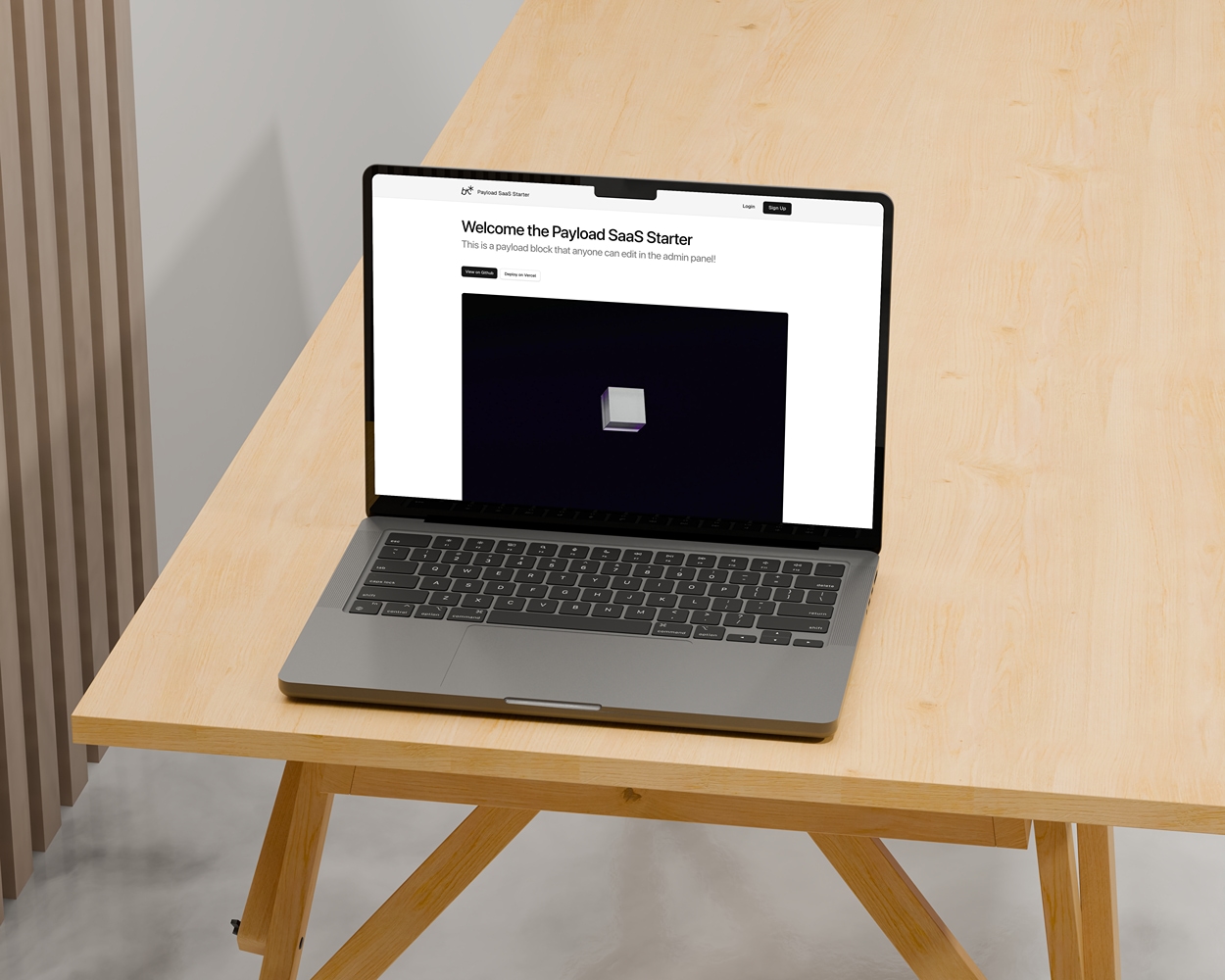A modern, open-source SaaS starter kit built with Next.js 15 and Payload CMS, designed to accelerate your SaaS development.
-
Authentication System
- Secure user authentication with HTTP-only cookies
- Email/password registration and login
- Email verification with automatic emails
- Password reset functionality (forgot password flow)
- Resend verification email capability
- Role-based access control (admin/user)
- Password strength validation
- "Remember me" functionality
- Protected routes with middleware
- Toast notifications for all auth feedback
-
Modern Tech Stack
- Next.js 15+ with App Router
- Payload CMS 3+ for content management
- TypeScript 5+ for type safety
- PostgreSQL database with Payload adapter
- Tailwind 4+ for styling
- shadcn/ui components
- Dark/light mode with theme persistence
- Resend for transactional emails
- Vercel Blob Storage (or S3/R2)
-
Developer Experience
- Clean project structure
- Server components and actions
- Reusable design system components
- Type-safe APIs with auto-generated types
- Cross-platform support with cross-env
- Built-in security headers
- Docker support included
- Vercel deployment ready
- Node.js and pnpm
- PostgreSQL database
- Blob Storage (Vercel Blob or S3/R2)
- Resend account for email functionality (optional but recommended)
-
Clone the repository:
git clone https://github.com/brijr/payload-starter.git cd payload-starter -
Install dependencies:
pnpm install
-
Set up environment variables:
cp .env.example .env
Edit the
.envfile with your database credentials and other settings. See the Environment Variables section for details. -
Start the development server:
pnpm dev
-
Visit
http://localhost:3000to see your application.
# Development
pnpm dev # Start development server
pnpm devsafe # Start dev server (clears .next cache first)
# Production
pnpm build # Build for production
pnpm start # Start production server
# Code Quality
pnpm lint # Run ESLint
# Payload CMS
pnpm payload # Access Payload CLI
pnpm generate:types # Generate TypeScript types
pnpm generate:importmap # Generate import map/src
/app # Next.js App Router
/(frontend) # Frontend routes
/(admin) # Protected admin routes
/(auth) # Authentication routes
/(site) # Public site routes
/(payload) # Payload CMS routes
/api # API routes
/auth # Auth endpoints (email verification)
/collections # Payload collections
/components # React components
/app # App-specific components
/auth # Authentication components
/site # Site components
/theme # Theme components
/ui # Shadcn UI components
ds.tsx # Design system exports
/lib # Utility functions
/public # Static assets
middleware.ts # Route protection
payload.config.ts # Payload configuration
Create a .env file in the root directory with the following variables:
# Database
DATABASE_URI=postgres://user:password@localhost:5432/dbname
# Payload
PAYLOAD_SECRET=your-secret-key-here
APP_URL=http://localhost:3000 # Your app URL (production URL in deployment)
# Email (Resend)
RESEND_API_KEY=re_xxxxxxxxxxxxxxxx # Get from resend.com
EMAIL_FROM=noreply@yourdomain.com
# Storage
BLOB_READ_WRITE_TOKEN=vercel_blob_xxxxxx # From Vercel dashboard# Cloudflare R2 or AWS S3
R2_ACCESS_KEY_ID=your-access-key
R2_SECRET_ACCESS_KEY=your-secret-key
R2_BUCKET=your-bucket-name
R2_ENDPOINT=https://your-endpoint.r2.cloudflarestorage.comThis starter uses Resend for transactional emails. To set up:
- Create a free account at resend.com
- Verify your domain or use their test domain
- Generate an API key
- Add the API key to your
.envfile
Email features include:
- Welcome emails on registration
- Email verification links
- Password reset emails
- Customizable email templates in
/src/lib/email.ts
login-form.tsx- Login with email/passwordregister-form.tsx- User registration with validationemail-verification-banner.tsx- Shows when email is unverifiedforgot-password-form.tsx- Request password resetlogout-button.tsx- Client-side logoutlogout-form.tsx- Server-side logout (works without JS)
- All UI components are in
/src/components/ui/ - Import common components from
/src/components/ds.tsx - Consistent theming with CSS variables
- Full dark mode support
- Authentication: HTTP-only cookies, secure flag in production
- Headers: Security headers configured in
next.config.mjs - CSRF: Built-in protection via Payload
- Input Validation: Zod schemas for all forms
- Password Security: Strength requirements, bcrypt hashing
- Rate Limiting: Built into Payload auth endpoints
This project is ready to deploy on Vercel:
- Push your code to a GitHub repository
- Connect the repository to Vercel
- Configure all required environment variables
- Deploy!
Contributions are welcome! Please feel free to submit a Pull Request.
This project is licensed under the MIT License - see the LICENSE file for details.
Created by brijr
